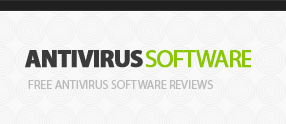Glossary Of Terms
Adware is usually represented by a toolbar that is set on the desktop or works in the web browser. This software is a kind of pop-up advertisement. Most of the adware is harmless malware. Adware can appear as a hidden spyware that can send your private information to another computer. Read more >>
Antivirus is protective software that defends your system against various malware. These are viruses, Trojans, rootkits, dialers, adware, hijackers and other malicious programs and code that attack user’s computer. To be highly protective an antivirus should be always updated, permanently active and trustworthy.
Backdoor gets into a user’s computer bypassing its security mechanisms. Sometimes the program can be installed for good purposes (for different kind of troubleshooting). But more frequently it is represented as malware that helps penetrating other malware like worms, Nimda, etc.
Botnet also known as “zombie army” constitutes a number of Internet computers that forward various transmissions including viruses and spam to other Internet computers. The owner of PC is unaware about it. A computer becomes a “robot” or “bot” that transmits spam materials or viruses. A bot is usually created through an Internet port that is left open. A small Trojan Horse is left there to be activated later.
Brute Force (brute force cracking) is an error method used by applications to decode passwords, DES keys, and other encrypted data using brute force. The Brute force application tries all possible combinations to crack. It is considered a reliable though taking much time method to get the “hidden” data from a computer system.
Firewall is a security barrier. It guards user’s PC from unnecessary and harmful intrusions. A firewall examines the network packets whether to allow them enter user’s computer or not. Very often the program is built-in Windows and other OS. But also it can be installed in specially designated computer that doesn’t allow any of incoming requests penetrate private network resources.
Denial of Service is an attack that prevents user to receive the services of a resource he expects to have. DoS can influence programming and files destroying them in an affected system. There are several ways how Denial of Service attacks user’s computer. The most common case is when it sends more traffic to a network address. It targets the weak areas of the system leaving it widely damaged.
Exploit is a software attack on a computer system. Usually it attacks the most vulnerable places of machine. Exploits are created by hackers (crackers) who post their exploits on different web pages to share with others. These attacks bring to unintended behavior on computer hardware, software or on any electronic device. Frequently an exploit leads to denial of service or privilege escalation attack.
Hacker (cracker) is a person (usually a programmer) who breaks into computer system. Typically this person is a proficient engineer or programmer who possesses thorough technical knowledge to detect the weak points in the security system.
Hacking means an action intended to reconfigure or reprogram the system without PC owner’s acknowledgment. Hacking also means modification of a computer program to provide the user with an access to earlier unavailable features. The procedure of hacking is very often used to make a credit card fraud, identity theft and different kind of computer crime.
Keylogger also known as system monitor or keystroke logger is a small program or hardware device. The program takes information of each keystroke a user types. As hardware a key logger is represented as a small plug connector between the keyboard and computer. While a user types something the keylogger collects the information as text and saves it in its own hard drive. Later the person who has installed the keylogger receives all necessary information like passwords, daily activity of the system, while the PC user doesn’t know about it.
IDS (Intrusion Detection System) check all outbound and inbound network activities and analyze the suspicious information within it. It finds the security breaches caused by different attacks. Intrusion Detection is based on Vulnerability Assessment. It estimates the security level of a computer system or network.
Phishing is an email that is sent to a user with the request to leave some private information about him. The user sees that the email is sent from legitimate enterprise and doesn’t suspect of identity theft. The email directs the user to a website where he has to update personal data. It can be password or credit card number or even bank account number. The website is nothing else but a bogus that steals user’s information and uses it in its own purposes.
Rootkit is software which accesses your computer and hides its presence from user. Usually it is installed by attacker when it obtains the first-level access. The malware steals passwords and appropriate computer resources of computer user. Rootkits usually attack the kernel, a hypervisor, and firmware or more frequently user-mode applications. To remove a rootkit is almost impossible. The only alternative can become the reinstallation of the operating system.
Scum (scumware) is any program that accesses user’s computer without his knowledge and consent. The term includes malware like adware, spyware, “bad” cookies, viruses, and other types of annoyware. The program can get access to the system as a shareware and freeware packages. Sometimes scumware is used for identity theft.
Spam is considered to be any unsolicited email. Usually spam contains unwanted advertisement that is sent to a newsgroup or mailing list. The bad feature of it is that spam consumes much of network bandwidth.
Spam filter is a special program that detects unsolicited emails and prevents them to get access to inbox folder. There exists a certain criteria according which spam filter observes spam. Usually these are special words or word patterns that are included in the subject of a message. Observing them a spam filter doesn’t allow their access to inbox.
Spyware is a malware installed on computer and intended for taking bits of information about users while they don’t know about it. This malware is rather difficult to detect. Spyware not only monitors the user’s activity but also collects personal information. It can change the settings of your PC, slow connections’ speed, loss of Internet, etc. Read more >>
Trojan (Trojan horse) is harmful software that modifies computer system. Usually it is characterized by uncontrollable pop-ups, advertisements on the desktop, installing various toolbars on to browser, etc. Moreover Trojan horses are frequently used by hackers. It allows them to have a remote access to infected PC and use it in their purposes.
Virus is a type of malware that infects computer by self-copying. Virus is an executable code that can be spread from one computer to another. It can be “caught” in Internet, from CD, DVD, Floppy Disk and even from USB drive. Read more >>
Virus signature is an algorithm that identifies the virus. It is a byte pattern that is sometimes modified by the virus itself. Antivirus programs use the signature to detect the presence of malicious code.
Worm is a malware that replicates itself. Using computer network it sends the copy of itself to other computers. Unlike the virus it doesn’t attach itself to another program. Worms are considered to be harmful because of their consuming of network bandwidth, while viruses can modify and corrupt the files.
Zombie (zombie computer) is a computer connected to Internet that was created by a computer virus, Trojan horse or a hacker in order to perform various malicious actions under remote direction. Very often a zombie machine is represented as a part of a botnet. The users of these computers are usually unaware of their system being used in this way.
Free Antivirus Software
- Free Antivirus Software
- Free Online Virus Scan
- Free Trojan Removers
- Free Adware/Spyware Removers
- Free Antivirus for Android
- Free Firewall
- Free Antivirus for Mobile
- Free Rootkit Removers
- Free Spam Filters
- Free Advanced Spam Filters
- Free HIPS (Host Intrusion Protection Software)
- Free Antivirus for MAC
- Free Antivirus for Linux
Antivirus Software
search site

